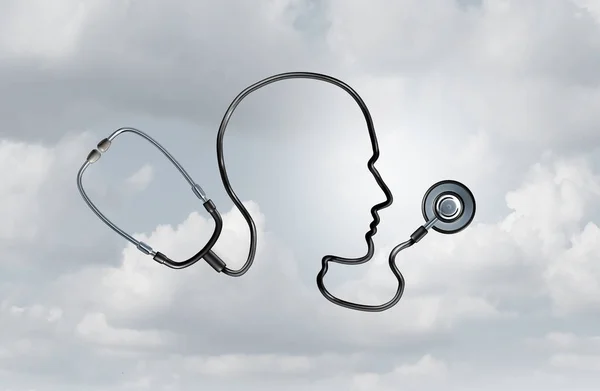Why is it that when we talk about physical illness, empathy pours in, but when it comes to mental health illness, silence and judgment often take its place? For too long, mental health stigma has made this crucial topic a taboo. But here’s the truth: Mental health is just as important as physical health—if not more so.
The stigma surrounding mental health disorders is pervasive and deeply ingrained, affecting how we view, discuss, and support those who struggle with it. Despite the increasing awareness and conversations about mental well-being, the shadow of stigma still looms large, preventing many from seeking the help they desperately need. But why does this stigma persist, and what can we do to dismantle it?
In this article, we’re going to peel back the layers of this stigma, examine its roots, and most importantly, discuss how we can break free from the chains that keep so many people from seeking the help they need.
Mental Health Status in Kenya-Facts you Must to Know
Kenya has recently recognized the critical state of its mental health crisis by declaring mental illness a national disaster. Here’s a general overview of the mental health status in Kenya, including key facts, causes,
It is estimated that one in ten Kenyans suffers from a common mental disorder, a figure that rises to one in four among patients attending outpatient services. The most frequently diagnosed conditions include depression, anxiety disorders, and substance use disorders, particularly alcohol abuse among young adults aged 18-29
Related: How To Overcome Social Media Anxiety and Depression
Why Are major causes of Mental Health Issues in Kenya
Understanding the causes of mental health issues is complex, as they arise from a web of interconnected factors. In Kenya, mental health challenges are influenced by a mix of socioeconomic, cultural, historical, and modern pressures. From economic hardships and substance abuse to the impacts of social media, educational demands, and political instability, each factor plays a role in shaping mental well-being
- Socioeconomic Factors: High unemployment, poverty, and limited access to quality healthcare create a challenging environment for mental health.
- Substance Abuse: Alcohol and drug misuse, particularly among youth, significantly impact mental health, often worsening existing conditions.
- Cultural Attitudes: Stigma and cultural beliefs lead to discrimination and isolation, preventing many from seeking necessary help.
- Historical Context: Underfunded and neglected mental health services, coupled with the legacy of colonial practices, perpetuate stigma and inadequate care.
- Social Media Pressure: The constant need to project a perfect image online can lead to feelings of inadequacy, anxiety, and depression among young people.
- Academic and Career Pressure: Intense competition in education and the job market, coupled with high youth unemployment, creates stress and anxiety about future prospects.
- Political and Social Instability: Issues like climate change, political tensions, and corruption contribute to a sense of helplessness and anxiety, impacting mental well-being.
Origins of Mental Health Stigma in Kenya
In Kenya, Mental health issues are often stigmatized, preventing many people from seeking help. This stigma fosters a culture of silence and misunderstanding, making it crucial to address these issues openly and supportively.
Mental health stigma is a complex and deep-rooted issue that has persisted for centuries. To understand why it exists and continues to thrive, we need to explore its origins, how it manifests, and what keeps it alive in modern society.
Historical Misconceptions
Historically, mental health issues were often misunderstood and feared. In many ancient cultures, mental illness was seen as a result of demonic possession, punishment from the gods, or moral failing. People with mental health conditions were often subjected to inhumane treatments, such as exorcisms or being locked away in asylums, far from the public eye. These practices reinforced the idea that mental illness was something to be feared and shunned.
Inadequate Medical Understanding
Until relatively recently, the medical field lacked the tools and knowledge to diagnose and treat mental health conditions properly. The absence of scientific understanding meant that mental illnesses were often lumped together under vague or inaccurate labels, further contributing to their mystification and stigmatization. This lack of clarity fueled fear and misunderstanding among the general public.
Cultural and Religious Beliefs
In many cultures, including in Kenya, mental illness has been stigmatized due to cultural and religious beliefs. Some communities viewed mental health issues as a curse, a sign of spiritual weakness, or divine retribution. These beliefs were often passed down through generations, solidifying stigma as part of the cultural fabric.
Why Mental Health Stigma Persists in Kenya
Societal Norms and Expectations
Society places a high value on strength, stability, and self-reliance. Admitting to a mental health struggle can be seen as a sign of weakness or vulnerability, which conflicts with societal expectations. This pressure to conform to a “strong” image prevents many from speaking out or seeking help, perpetuating the stigma.
Media Representation
The media plays a significant role in shaping public perception. Unfortunately, mental health issues are often portrayed negatively in films, TV shows, and news stories. People with mental health conditions are frequently depicted as dangerous, unstable, or unpredictable. These stereotypes reinforce fear and misunderstanding, making it difficult to change public attitudes.
Fear of the Unknown
Mental health issues are often invisible, and their symptoms can vary widely from person to person. This unpredictability creates fear and discomfort, as people tend to fear what they don’t understand. The lack of open conversation about mental health only exacerbates this fear, making it easier for stigma to persist.
Lack of Education and Awareness
Despite progress in recent years, many people still lack a basic understanding of mental health. Without proper education, it’s easy for myths and misconceptions to take root. For example, some may believe that mental illness is something you can “snap out of” or that it only happens to certain types of people. These misunderstandings make it harder for individuals to empathize with those who are struggling, contributing to the stigma.
Cultural Silence
In many cultures, including in Kenya, discussing mental health openly is still taboo. The fear of judgment from family, friends, or the community leads to silence. This silence perpetuates the stigma, as it prevents people from sharing their experiences and normalizing the conversation around mental health.
How to Break the Mental Health Stigma; Why Open Discussion Matter
In Kenya, mental health has long been a taboo subject, often dismissed or misunderstood. Many people still view mental health issues as a sign of weakness or something that happens to “other” people. But as more young Kenyans speak out about their struggles, it’s becoming clear that mental health is something we all need to talk about.
- Normalization: By sharing personal experiences and discussing mental health openly, we begin to normalize these conversations. For example, Kenyan celebrities and influencers who have opened up about their struggles have played a crucial role in shifting the narrative. When people see that they’re not alone and that seeking help is okay, it can make a world of difference.
- Increased Awareness: Open discussions help raise awareness about the different types of mental health issues and the resources available. Many Kenyans are still unaware of where to turn for help or how to recognize the signs of mental health challenges. Awareness campaigns, like those run by organizations such as Ituura wellness and ODAK are vital in providing information and support.
- Reduction of Stigma: Every time someone talks openly about their mental health, it chips away at the stigma. It’s not just about breaking down the barriers for individuals; it’s about creating a society where mental health is treated with the same seriousness as physical health. Imagine a world where visiting a therapist is as normal as going to the doctor for a check-up—that’s the goal.
Building a Supportive Environment
Destigmatizing mental health in Kenya requires more than just conversation—it requires action. Here’s how we can build a more supportive environment for all :
- Educational Resources: Incorporating mental health education into school curriculums is essential. Schools can become safe spaces where students learn about mental health from a young age, recognize when they or their peers need help, and understand that it’s okay to seek it.
- Accessibility of Care: Access to mental health care in Kenya is limited, especially in rural areas. Expanding services, training more mental health professionals, and making care affordable are critical steps. Telehealth services are beginning to bridge this gap, allowing more people to receive the help they need without the barriers of distance or stigma.
- Supportive Communities: It’s crucial to build communities where mental health is openly discussed and supported. This can be within families, schools, workplaces, and online spaces. When parents, teachers, and friends create environments where it’s safe to talk about mental health, they empower young people to seek the support they need without fear of judgment.
In Conclusion
What Can You Do? Understanding and supporting mental health starts with awareness.
Talk openly about mental health issues, challenge the stigma, and support initiatives that promote mental well-being. Whether it’s educating yourself about mental health, supporting friends and family, or advocating for better mental health resources, your actions can contribute to a more compassionate and supportive society.
Read Next: How to Overcome Mental Health Struggles as Gen Z
By shedding light on these issues and engaging in open discussions, we can help dismantle the barriers that prevent many from seeking the help they need. Together, we can work towards a Kenya where mental health is recognized, supported, and prioritized for everyone.



